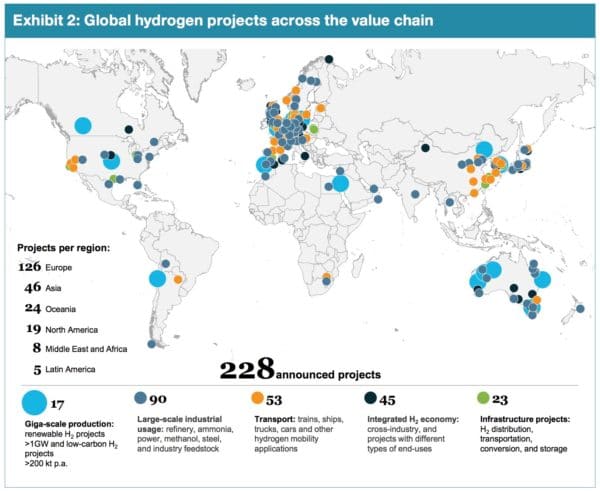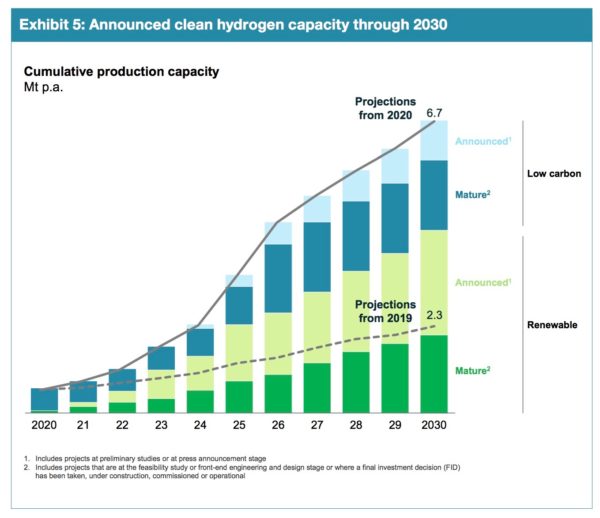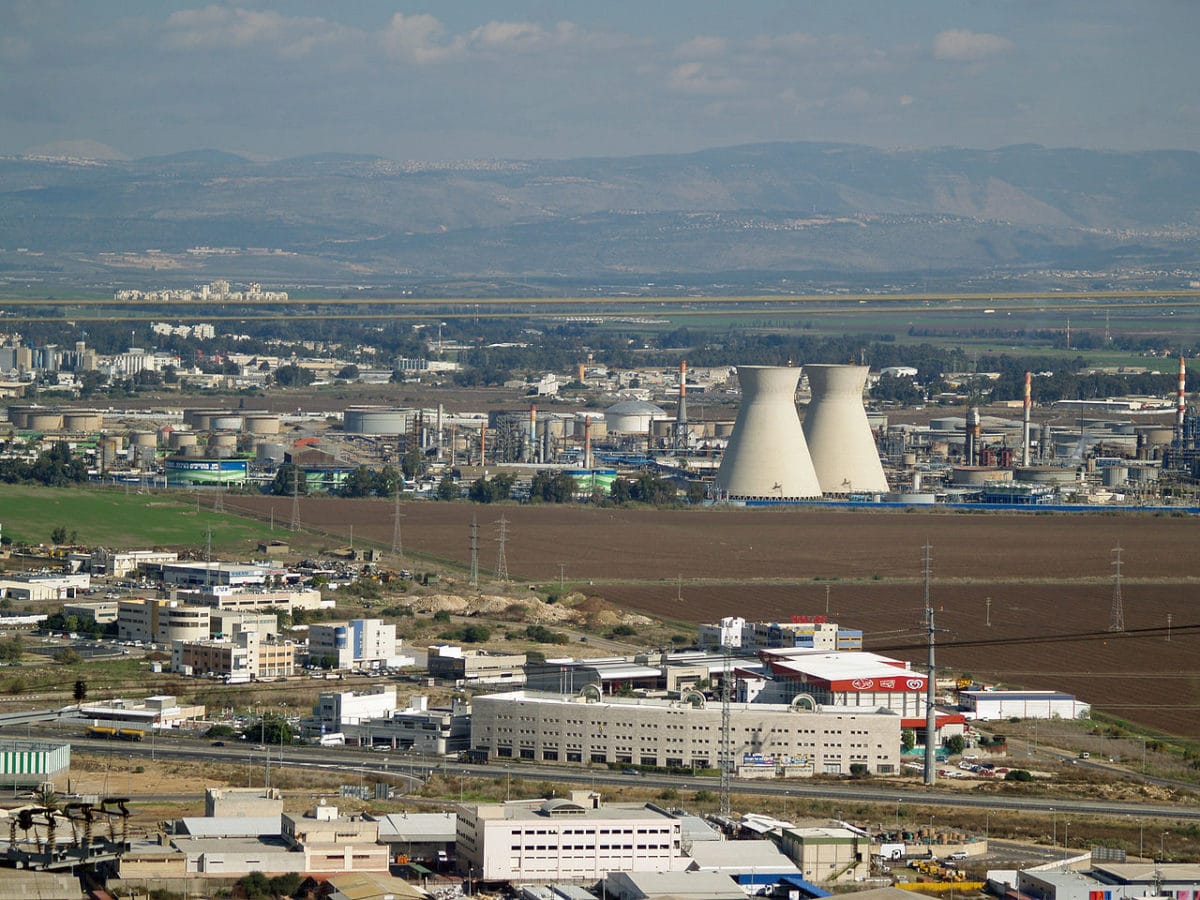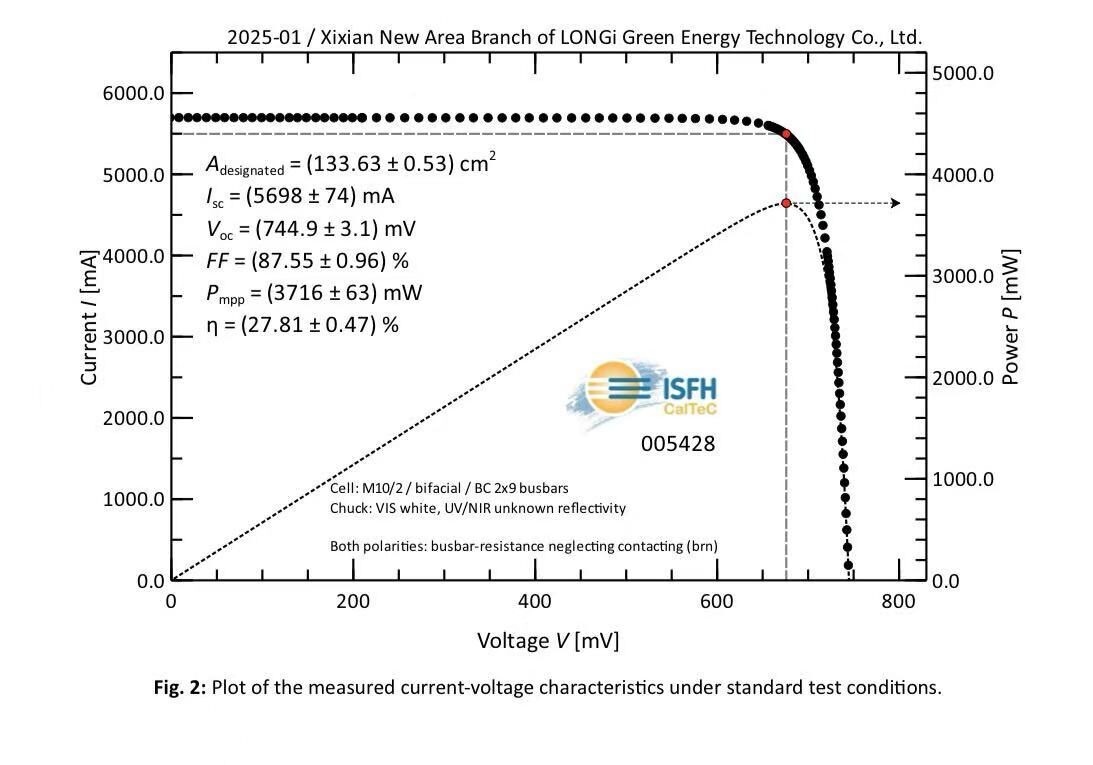According to a new report by the Hydrogen Council, the release of national hydrogen strategies by over 30 countries has led to a rapid increase in the volume of investment in hydrogen projects worldwide. The Hydrogen Council is made up of 109 constituent members, representing in excess of US$8.8 trillion in market capitalization and including companies such as BP, Shell, Siemens Energy, Toyota, Anglo American, Snam, and Fortescue.
The report, developed in collaboration with McKinsey & Company and entitled “Hydrogen Insights 2021: A Perspective on Hydrogen Investment, Deployment and Cost Competitiveness”, estimates the total investment in hydrogen projects will surpass $300 billion by 2030, including US$80 billion in mature projects. Of course, these figures, it should be noted, assume all announced projects are successfully achieved.
This $300 billion is made up of 228 large-scale projects announced in the value chain, of which 85% are in Europe, Asia and Australia. These projects are not all massive generation projects like the 26 GW Asian Renewable Energy Hub in Western Australia, but also transport applications, infrastructure, and large-scale industrial usage projects.
In fact, it is in these latter sectors that the Hydrogen Council expects to see hydrogen become the most competitive fuel source. The report finds that hydrogen “can become the most competitive low-carbon solution in more than 20 applications by 2030, including long-haul trucking, shipping and steel.”

According to Daryl Wilson, Executive Director of the Hydrogen Council, members are collectively “planning a sixfold increase in total hydrogen investments through 2025 and a 16-fold increase through 2030. The plan is to direct most of this investment toward capital expenditures, while collaborations, consolidations and innovation will also be a key focus.”
Clusters
The report particularly highlights the importance of hydrogen project deployment in clusters. Martin Tengler, BloombergNEF's Lead Hydrogen Analyst, told pv magazine very much the same thing. Clusters are “the natural places to start with hydrogen,” Tengler says, “you're going to have to start small, some kind of industrial cluster that takes a lot of natural gas…especially if they are already using hydrogen, like refinery clusters, fertilizer factories etc.”
According to the report, there are three types of clusters and all are on the increase. The first is, as Tengler said, industrial centers already supporting refining, power generation, and fertilizer and steel production. The second is export hubs in resource-rich countries, which is to say, countries rich in solar and wind. And thirdly, port facilities.
Australia is already leading the way in this regard after the recent establishment of a network of 13 clusters.
Decarbonization
If these clusters can be nurtured and transitioned then the future hydrogen economy flowing between production hubs in the Middle East, North Africa, South America and Australia will be able to trade with demand centers such as Japan, South Korea, and the European Union.
Moreover, the scaling of green hydrogen will help make significant inroads for emissions reduction. As Takeshi Uchiyamada, Chairman of the Board of the Toyota Motor Corporation and Co-chair of the Hydrogen Council put it, “Hydrogen can help to unlock deep decarbonization and achieve global climate targets.”

How rapidly this scaling can be achieved and a global hydrogen economy established is another matter. The cost of renewables and electrolysis continues to fall, but as Tengler points out, first we need to see domestic production and consumption of green hydrogen. “Even though there is a lot of talk about shipping etc., we are going to start first with small projects done domestically on site… Only once you've got a couple of hubs might you start seeing networks, but they will be limited at first… I would expect first local production and local consumption.”
This content is protected by copyright and may not be reused. If you want to cooperate with us and would like to reuse some of our content, please contact: editors@pv-magazine.com.




Perfect
This field will be developed strongly